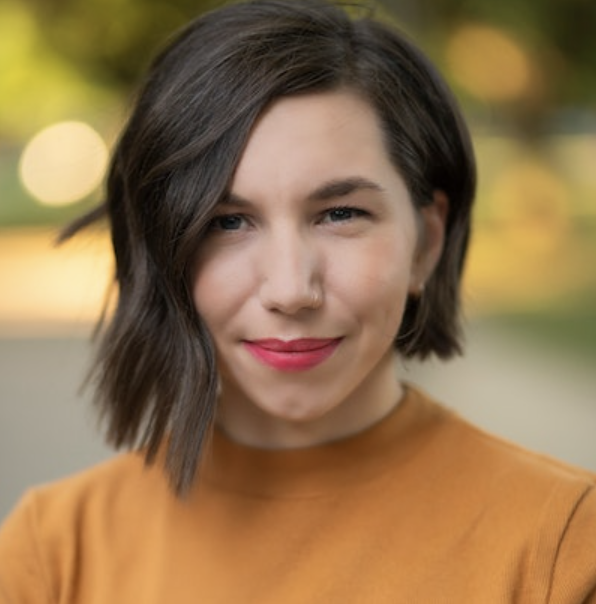Former Postdoctoral Fellow Elissa Sarno Joins ISGMH Faculty
Elissa Sarno, Ph.D., has been hired as a research assistant professor at Northwestern University’s Institute for Sexual and Gender Minority Health and Wellbeing (ISGMH) and the Department of Medical Social Sciences at Feinberg School of Medicine. Sarno's appointment begins May 1, 2021.
Sarno originally joined ISGMH in August 2018 as a postdoctoral fellow and has worked extensively with the institute's 2GETHER project. An invaluable member of that team, Sarno will serve as the clinical director of the 2GETHER intervention.
We spoke to Sarno about why she studies sexual and gender minority (SGM) health, her experience as a postdoc at ISGMH, and where she see her research going next.
 What inspires or motivates you to study SGM health?
What inspires or motivates you to study SGM health?
One of my first experiences working in SGM health was when, as a master’s student at Columbia University, I joined the health service as an HIV test counselor. I was fortunate to have opportunities to speak directly with patients about their sexual health needs and concerns, which helped me to develop a more nuanced understanding of the role that stigma, discrimination, and systemic inequities play in the health and wellbeing of SGM communities. Sexual and gender minorities remain underserved populations that face numerous health disparities, and the ultimate goal of my research is to center the experiences of SGM communities in order to learn how these disparities can be eliminated.
What projects are you working on at ISGMH?
I work primarily on 2GETHER, an intervention that aims to reduce HIV incidence by teaching relationship and sexual health promotion skills to young men who have sex with men (YMSM). As a postdoc, I worked on two randomized controlled trials of 2GETHER led by my mentor, Dr. Michael Newcomb.
Dr. Newcomb was recently awarded a U01 grant from the National Institute of Allergy and Infectious Diseases, which will allow us to expand the intervention by enrolling couples, individuals in relationships, and single YMSM, as well as focus on engaging Black and Latinx YMSM, transgender men, and people from rural areas. These populations are disproportionately impacted by HIV in the US and face barriers to accessing appropriate HIV prevention services. As a part of the new 2GETHER grant, I will be serving as the clinical director of the intervention, and my responsibilities will include adapting the intervention content as well as training and supervising of intervention facilitators.
What direction do you see your research moving towards? Are there specific topics, populations, or methods that especially interest you?
I’m looking forward to continuing my research on the impact of minority stress on mental health and substance use for sexual and gender minority individuals and couples, experiences of those with multiple marginalized identities, and HIV prevention. I am particularly excited to do more research on couples using dyadic data, utilizing longitudinal data to study how experiences of stigma can impact mental health and substance use over time, expanding more into qualitative work, and developing interventions to address health disparities in SGM populations.
Can you talk about you time as a postdoc at ISGMH and whether that contributed to you joining the ISGMH faculty?
My time as a postdoc at ISGMH has been truly invaluable, personally and professionally. I’ve been very fortunate to have had Dr. Newcomb as my mentor, who, along with other ISGMH faculty, postdocs, and staff, has taught me so much about intervention development, designing and conducting randomized controlled trials, advanced statistical techniques, and grant and manuscript writing. I have loved working with the 2GETHER team and was thrilled to be given the opportunity to continue working on the next phase of the project as faculty. ISGMH’s collaborative environment and commitment to producing innovative research to improve the health and wellbeing of SGM communities make it the perfect place for me to continue in my development as a researcher. I am eager to contribute to ISGMH’s mission as a faculty member and excited for this next chapter in my career.